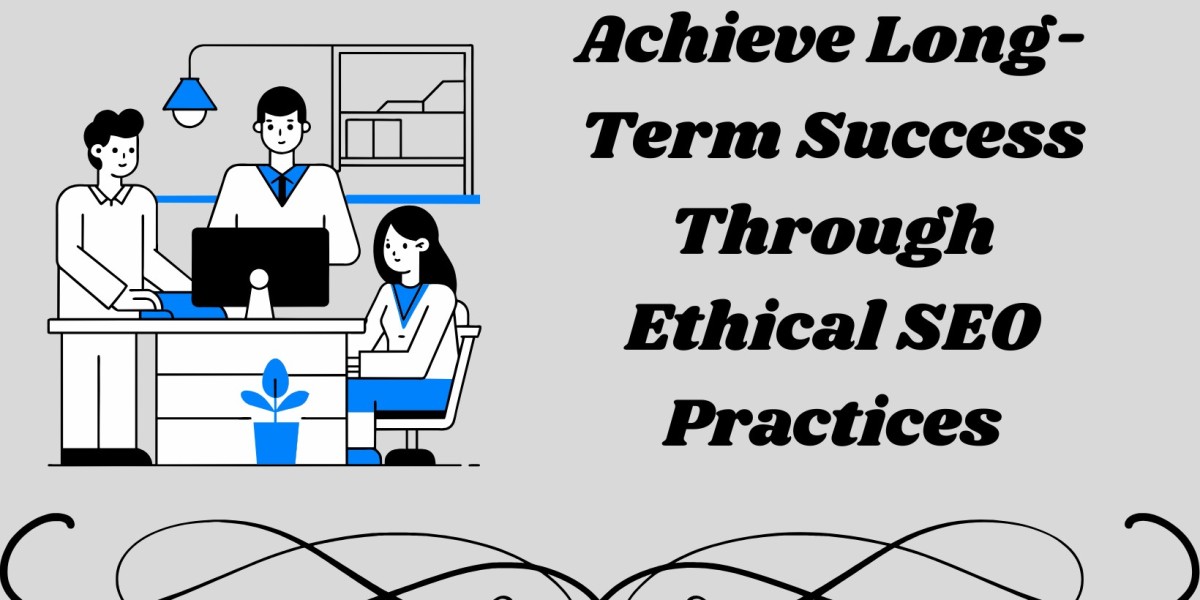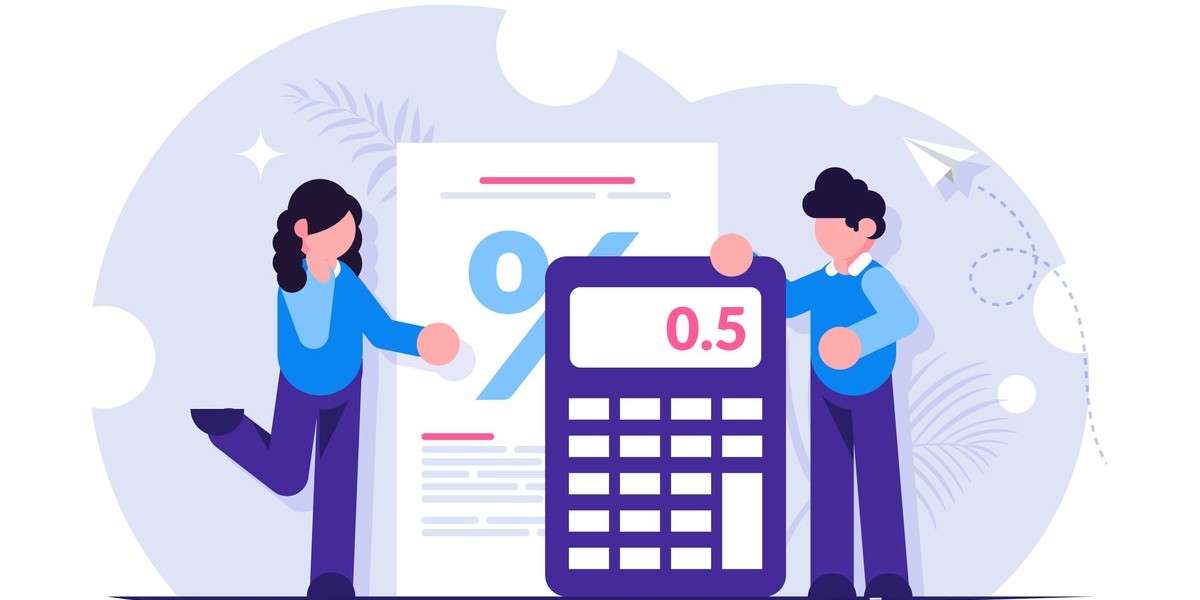At our AI-powered custom software and mobile app development company, which has been operating for over twenty years and contributing to major technology platforms for the past decade, we’ve observed a clear trend: the companies that win in search aren’t just the ones chasing rankings. They are the ones building trust, value and integrity at the core of their SEO strategy. In this article we will explore how ethical SEO practices are not a nice-to-have. They are the foundation for sustainable growth. We will engage in insight, decode technical concepts, examine case studies and deliver actionable guidance you can apply right away.
What Does “Ethical SEO” Actually Mean
Let’s start by defining our terms. When you hear “ethical SEO” you might think “just follow the rules.” Yes, but more than that it means aligning your optimisation strategy with doing right by users, search engines and your brand.
Ethical SEO is often described as the opposite of “black hat” or manipulative tactics. According to trusted sources, it involves creating original, helpful content, optimising user experience, building honest links and avoiding shortcuts that risk the future of your site.
In short, it’s user-first. It is long-term. It is credible.
When we work on custom software and mobile app solutions, our clients rely on us to deliver not just functionality but trust. The same holds for your website. If your search visibility is built on shaky foundations, you may see short-term gains—but the penalty risk or loss of credibility can damage your brand for years.
Let’s delve into why ethical SEO matters more than ever in 2025.
Why Ethical SEO Matters Now More Than Ever
Here’s where things get interesting. If you thought SEO was just about keywords and links, think again. The landscape is shifting, and ethical practices give you resilience.
The penalty-risk is real
Search engines regularly update their guidelines and crack down on manipulative tactics. For example, websites that publish content unrelated to their domain merely to piggy-back on ranking signals are being flagged. Risking a penalty doesn’t just affect one page it can undermine your entire domain. If you are in the software/services sector, a hit to your domain could impact every product, service and case study.
Builds trust with your audience
One empirical study found that exposure to black-hat techniques leads to negative brand perceptions, lower purchase intentions and decreased trust. In the software development world the decision-maker wants reliability. If your website feels manipulated, technical clients will recognise it.
Long-term advantage
Ethical SEO isn’t about quick wins. It’s about building a foundation. According to research, sites designed with user experience, strong content and proper optimisation earn better engagement and conversion rates. If you invest in ethical practices now you’ll be in a stronger position when algorithms shift.
User-centred design and value
Ethical SEO emphasises the visitor. Creating content you would want to read. Making navigation clear. Ensuring accessibility. One source says accessibility improvements across domains correlated with noticeable traffic gain. In mobile app development especially we know the product experience matters. Your website must reflect that same commitment.
Quick conversation check-in:
When was the last time your site underwent a user-experience audit? If you can’t remember, we might have some work to do. Let’s move on to the core components of ethical SEO.
Core Principles of Ethical SEO
To put theory into practice, here are the key pillars you should focus on.
1. Content that serves your user
Your content should answer real questions, address real concerns and add genuine value. This means original insight, not recycled fluff. When you create content about mobile app development, AI integration or custom software workflows, ensure it has depth and relevance. According to best-practice guides, that means focusing on intent and usability rather than keyword stuffing.
For example, a blog post outlining how we built a logistics mobile app with predictive AI gives your audience something concrete: technologies used, challenges faced, results achieved.
2. Technical integrity
Optimising content is just half the battle. Your website infrastructure must support your ambitions. Ethical SEO demands mobile-friendly design, fast load speeds, clear navigation, structured data and clean URLs. You are providing software solutions. Your platform needs to reflect that level of technicality. As one source puts it: avoid hiding content from users or search engines to gain ranking.
A clean technical foundation makes everything else possible.
3. Transparent and meaningful link-building
Links remain a signal of credibility. Ethical link-building means: earn links through value, not pay for them or manipulate them. One article emphasises “earn links, don’t scheme for them”.
In a B2B services context you can guest post on industry-journals, collaborate on case studies, be featured in tech-news sites. That boosts your authority and falls squarely into ethical practice.
4. User experience, accessibility & trust
Part of ethical SEO means designing for all users—mobile, desktop, accessibility-needs included. Use alt text for images, logical heading structure, good colour contrast, browser-friendly layouts. One study linked accessibility improvements to traffic gains.
Trust also means transparency: disclose any affiliate links if applicable; don’t mislead titles or meta descriptions just to attract clicks.
5. Stay aligned with search engine guidelines
Search engines publish guidelines (“Search Essentials” by Google). Ethical SEO means staying up to date, not chasing loopholes. As a rule: create pages primarily for users, not search engines.
In the software development services market your credibility depends on stability. You do not want your visibility compromised by algorithm updates.
How Ethical SEO Fits With AI-Powered Service Businesses
Here’s where our specific niche (custom software/mobile apps/AI integration) gives us an edge—and a responsibility.
Storytelling that conveys expertise
When you build custom AI-powered mobile apps you can write about technologies (e.g., TensorFlow, PyTorch, React Native, Swift/Kotlin), integration strategies, data pipelines, UX design for AI features. These narratives build authority. Your content isn’t generic. It reflects your domain. That aligns with the “expertise” element of SEO value.
Demonstrating results
Unlike many products, software services benefit from case-studies, user-stories and outcomes. Share metrics (where permissible), workflow diagrams, screenshots, testimonials. That adds trust, which helps ETHICAL SEO and ranking. These are not gimmicks—they reflect reality.
Optimising for new search interfaces
AI search, voice search and generative responses are becoming more relevant. According to research, the field of “Generative Engine Optimization (GEO)” is emerging to reflect AI-driven search systems. For a business offering AI-powered development, you are in a prime position to lead in this domain. Ethical SEO means you can optimise for traditional search and emergent AI query formats, while maintaining integrity.
Long memory value
Your services are long-term engagements. The SEO we do should mirror that: build pages not for “one campaign” but as assets for years. That means choosing evergreen topics (“mobile app architecture best practices 2025”), updating them, linking them to newer content. You build a content ecosystem—not a campaign.
Okay, quick check-in:
If you treat SEO like “publish once and forget”, you’re missing the point. Let’s move into how you craft an ethical SEO strategy that your company can deploy right now.
Building Your Ethical SEO Strategy
Let us walk through a practical roadmap. Think of this as the playbook we use for clients in the custom software/app space.
Phase 1: Audit and Clean Up
Start with where you are now.
Perform a full content audit. Identify thin or duplicate content. Remove or merge low-value pieces.
Run a technical audit. Check mobile-friendliness, page speed, layout shift, crawl errors, redirect chains, canonical tags.
Review link profile. Are there spammy outbound links? Unnatural inbound links? If yes, work on disavow or removal.
Check user experience and accessibility. Are headings logical? Are images alt-tagged? Is the site usable on mobile?
Doing this ensures your foundation is ethical and strong.
Phase 2: Content Planning Aligned With Purpose
Next, define your audience and their problems.
Identify key personas: CTOs of logistics firms, product managers of fintech startups, business heads of healthcare apps.
List their top questions and pain-points (cost of AI mobile app, common pitfalls in cross-platform development, AI data privacy for mobile).
For each key question, plan content pieces that serve more than just “rank”. They must educate, clarify, provide case insight.
Use long-tail queries and conversational phrases. Many modern users type full questions or use voice search.
Prioritise evergreen and updateable content. For example, “Preparing your enterprise for AI-powered mobile app rollout” instead of “Top mobile apps 2022”.
Phase 3: Link Building With Integrity
Now you build authority.
Create guest posts for reputable tech or mobile-dev publications (not random SEO link farms).
Collaborate on meaningful partnerships: perhaps a white-paper on AI mobile integration with an industry body.
Encourage genuine mentions: publish case studies and ensure clients tag you and link to your site.
Avoid shortcuts: no link purchase, no irrelevant directories, no private blog networks. These are unethical and risky.
Over time you will build a network of credible signals pointing to your site.
Phase 4: UX, Accessibility and Conversion
People arrive on your page. What happens next matters.
Make sure each page loads fast (especially on mobile), is easy to navigate, uses clear headings and delivers what the title promised.
Use internal linking to guide users deeper into your content ecosystems (service pages, case studies, blog insights).
Use clear calls to action: maybe “Request an AI mobile app consultation”, “Download our mobile architecture checklist”. Provide value.
Ensure accessibility: alt text for images, logical heading order, understandable links, mobile-usable menus. This is part of ethical practice.
A good UX means users stay longer, scroll more, click more—all signals that search engines register.
Phase 5: Monitoring, Update and Adapt
Finally, you must iterate over time.
Track key metrics: organic traffic, page engagement (time on page, bounce rate), conversions from organic visits, backlink quality.
Update your content at regular intervals: refresh facts, add new insights, retire outdated advice.
Monitor search engine guideline changes and algorithm updates. For example, new policies regarding “site reputation abuse” or “parasite content”.
Be prepared to adjust your strategy when you see shifts in performance. Ethical SEO is not “set and forget”.
Ethical SEO vs Unethical Short-Cuts: The Comparison
To bring this into focus let’s contrast what ethical SEO looks like vs what you might see from a less-principled approach.
Practice | Ethical Approach | Short-Cut / Unethical Approach |
Content creation | Original, user-centred, research-driven | Copy-past, spun, keyword-stuffed |
Link building | Earned links, industry relevance | Bought links, link farms, PBNs |
UX & structure | Mobile-friendly, accessible, fast | Hidden text, invisible links, slow loads |
Transparency | Clear disclosure, honest meta descriptions | Clickbait titles, misleading promises |
Long-term view | Building value over months/years | Quick wins, guaranteed top rankings, then risk of penalty |
One insightful article states that unethical techniques may yield initial gains but carry severe long-term negative consequences.
In our field of software services, where relationships matter and credibility is currency, the reputation hit from unethical SEO is simply too high.
Let’s pause.
If you’ve ever been pitched “We’ll get you #1 in 30 days” you already know that promise is suspect. Let’s now look at emerging trends and how ethical SEO evolves.
Emerging Trends in Ethical SEO for 2025 and Beyond
SEO does not stand still. As a company delivering AI-powered services you’ll want to stay ahead of the curve. Here are trends to monitor.
A. AI-Driven Search and Answer Engines
As we touched on earlier, search is evolving. “Generative Engine Optimisation (GEO)” and “Answer Engine Optimisation (AEO)” are emerging strategies designed for AI-powered search interfaces.
For your business it means writing content that not only ranks in traditional search but is structured to be used as referenced material by AI systems (clear, context-rich, properly sourced).
B. Emphasis on Earned Media and Authority Signals
AI search systems increasingly prioritise content from authoritative, independent sources. If your site is mentioned and cited by industry peers, you win. The days of purely internal optimisation dominating are fading. Your link-building must be rooted in authenticity.
C. Mobile and Voice Search Continue to Rise
User behaviour shifts: more searches via voice, more queries executed on smartphones. Ethical SEO means designing content that responds to voice-style questions, ensures mobile usability and anticipates digestible formats.
D. Accessibility, Diversity and Inclusive UX
Web accessibility is becoming mainstream—not optional. Ethical SEO must consider users with disabilities, multiple languages, regional variations. One source linked accessibility improvements directly to traffic gains.
If you operate globally, inclusive design is both ethical and strategic.
E. Data-Privacy, Transparency and Trust Signals
Users are more aware of tracking, data usage and privacy. Ethical SEO involves being clear about cookies, data collection, permissions and ensuring your analytics and tracking are compliant.
Trust is a ranking signal in its own right.
Measuring Ethical SEO Success
You’re investing resources and you need to show ROI—not just rankings but real business outcomes. Here’s how to measure ethically.
Organic traffic growth: Overall and by pages linked to your service offerings.
Keyword ranking improvements, especially for long-tail, intent-driven queries.
Engagement metrics: Time on page, scroll depth, pages per session. These indicate quality.
Conversion metrics: Are visitors from organic traffic requesting demos, contacting you, downloading materials?
Backlink profile quality: Number of referring domains, their domain authority, relevance of those domains to your niche.
Technical performance: Page load times, mobile usability scores, accessibility compliance.
Brand mentions / citations: Outside of your site—industry reports, guest posts, reference links.
These metrics align with ethical goals: delivering value, building trust, creating sustainable growth.
Final Thoughts
We’ve covered a lot of ground. We started with what ethical SEO means, explored why it matters, identified core principles, aligned them with our niche, built a strategy, contrasted with unethical shortcuts and looked ahead to trends. If you apply these practices you won’t just chase ranking positions—you will create a web presence that reflects your company’s expertise, credibility and service excellence.
In the world of custom software, mobile apps and AI solutions the stakes are high. Your clients evaluate trust, reliability and long-term performance. Your SEO must mirror that mindset. By choosing ethical practices you are building a foundation that withstands algorithm shifts, penalises less and delivers relevance.
As we step into the future, let’s remember: search is a conversation between users and your brand. Make sure it is honest, insightful and built to last. And when you’re ready to scale your visibility, collaborate with experienced organic seo experts who uphold the same standards and can align with your technical service roadmap.
FAQS
1. What exactly makes an SEO practice “ethical”?
An SEO practice is considered ethical when it follows search engine guidelines, focuses on user experience, and delivers genuine value through original content. It avoids manipulative methods like keyword stuffing, paid link schemes, cloaking, or misleading titles. The goal is to build sustainable growth rooted in trust, transparency, and quality rather than exploiting loopholes for quick gains.
2. Why should businesses care about ethical SEO if black-hat tactics still seem to work for some?
Shortcuts can produce temporary spikes but carry a high risk of penalties or loss of credibility. Search algorithms now recognise manipulative behaviour faster than ever. Once a site’s reputation is damaged, recovery is difficult and expensive. Ethical SEO, on the other hand, compounds over time and builds durable visibility that withstands algorithm changes.
3. How can custom software and mobile app companies apply ethical SEO effectively?
Such companies can focus on creating high-value technical content like detailed case studies, architecture explainers, framework comparisons, and trend insights. They can optimise site structure, improve mobile performance, use schema markup, and earn backlinks through thought leadership articles or collaboration with industry publications. These steps align technical expertise with search transparency.
4. Are AI tools compatible with ethical SEO practices?
Yes, when used responsibly. AI can streamline keyword research, content ideation, and user-behaviour analysis, but human oversight is crucial. Ethical SEO ensures AI-generated insights serve users and uphold content integrity. The goal is augmentation, not automation of judgment. AI should help refine clarity, context, and accessibility rather than create filler content.
5. How can a business tell if its SEO partner follows ethical practices?
Transparency is the biggest indicator. Ethical SEO providers will share their methods, explain link-building sources, and present measurable strategies without promising unrealistic results like “#1 ranking in 30 days.” They focus on consistent performance, content quality, and adherence to search guidelines. Asking for audit reports, progress updates, and data-backed reasoning helps verify credibility.







